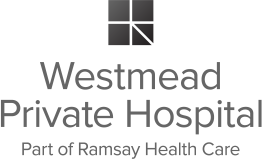Vaginal Birth After Caesarean, commonly abbreviated as VBAC, is a birthing option for women who have previously delivered a baby via caesarean section. This practice is an important consideration for expectant mothers evaluating their childbirth options. According to obstetrician and gynaecologist Dr. Delgado, VBAC can offer several significant advantages over a repeat caesarean section, though it also comes with its own set of risks that need to be carefully weighed.
One of the primary benefits of VBAC is the reduced recovery time compared to a caesarean section. A vaginal delivery typically allows for a quicker and less painful recovery, enabling new mothers to return to their daily activities and care for their newborn more promptly. Additionally, VBAC is associated with lower risks of surgical complications, such as infections, blood clots and injury to organs, which are more prevalent in caesarean procedures.
Another advantage highlighted by Dr. Delgado is the potential for a more positive birthing experience. Many women who have undergone VBAC report a greater sense of empowerment and satisfaction with their birthing process. The ability to experience a natural birth can be emotionally fulfilling and may foster a stronger initial bond with the newborn.
However, Dr. Delgado also cautions that VBAC is not without its risks. The most serious potential complication is uterine rupture, a rare but severe condition where the scar from the previous caesarean section tears open during labour. This can lead to significant bleeding and pose life-threatening risks to both the mother and baby. Therefore, careful selection of candidates for VBAC is crucial. Factors such as the type of uterine incision, the number of previous caesarean deliveries, the reason for the prior caesarean and the overall health of the mother play pivotal roles in determining VBAC eligibility.
For women considering VBAC, it is essential to have a thorough discussion with their healthcare provider. Dr. Delgado emphasises the importance of personalised medical advice, as each pregnancy is unique. A detailed review of the mother’s obstetric history and a comprehensive assessment of the current pregnancy will help in making an informed decision. In some cases, additional monitoring and interventions may be necessary during labour to ensure the safety of both mother and baby.
In Australia, the approach to VBAC has become increasingly supportive, with many hospitals and birthing centres offering this option to eligible women. The Australian healthcare system encourages shared decision-making, where the risks and benefits are openly discussed, and the mother’s preferences are considered. Dr. Delgado notes that with proper medical support and monitoring, many women can successfully have a VBAC, experiencing a safe and rewarding vaginal birth after a previous caesarean.
Ultimately, the decision to attempt a VBAC is a deeply personal one that should be made in consultation with a trusted healthcare provider. By considering the medical history, current health status and personal birthing preferences, women can make informed choices about their childbirth options. Dr. Delgado’s expertise underscores the importance of individualised care and the potential for a positive outcome with VBAC when appropriately managed.












